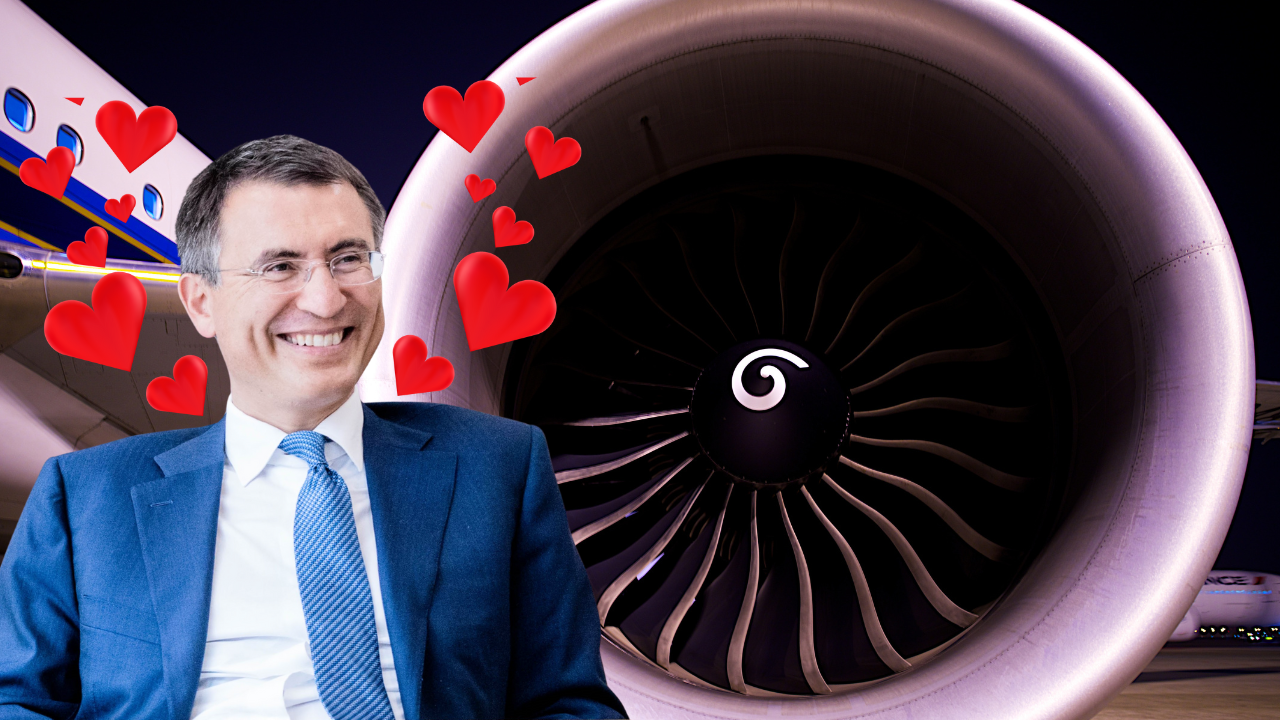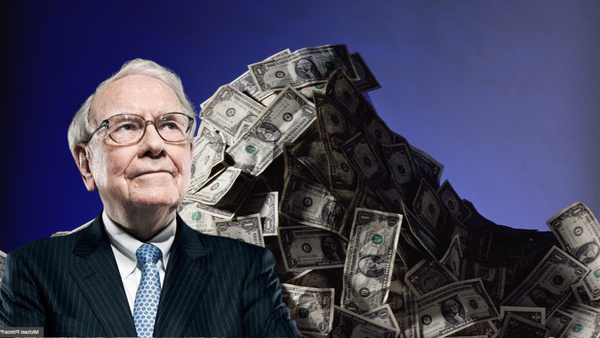Why Chris Hohn & TCI Own GE Aerospace

Chris Hohn runs the multi-billion dollar hedge fund The Children's Investment Fund (TCI).
As of 2022, the fund generated annualized returns of over 18%. In 2023, TCI's return soared to 32.7%.
TCI achieves these impressive returns by focusing on a select few great businesses with strong competitive moats. The fund then acquires substantial stakes in these companies when the market views them as "damaged goods."
When TCI began buying GE/GE Aerospace in Q1 of 2023, the company ticked all of Chris Hohn's boxes.
GE Aerospace Barriers to Entry
Chris Hohn and TCI want companies that have large barriers to entry.
For us, we generate alpha through a number of ways. Firstly, understanding the sustainability of business models, selling business models, and taking a long term horizon, over which the persistence of high barriers to entry plays out, very much in the philosophy of Warren Buffett.
GE Aerospace and the jet engine business come with incredible barriers to entry and high switching costs.
Duopoly
The commercial jet engine business serves two distinct end markets: wide-body jets (twin-aisle) and narrow-body jets (single-aisle).
Two companies dominate each market. GE Aerospace and Rolls-Royce lead in wide-body engines, while GE Aerospace and Pratt & Whitney control the narrow-body segment.
With a total engine install base exceeding 40,000 commercial engines, GE Aerospace commands about 75% of the commercial jet engine market.
GE Aerospace's position results from years of massive capital investments in R&D and manufacturing facilities. For a new entrant to compete in this market would be prohibitively expensive. Even if a potential competitor could raise the capital to build out their manufacturing capabilities, it's questionable whether they could achieve the economies of scale that make GE Aerospace's efforts economically viable.
R&D
GE's consistent R&D investment has produced increasingly fuel-efficient engines with impeccable safety ratings. This commitment has secured GE Aerospace's leading position in jet engine manufacturing, creating a self-reinforcing positive cycle.
GE's dominant manufacturing position provides better economies of scale than its competitors, resulting in higher operating margins. This advantage fuels a virtuous cycle: higher margins enable GE to reinvest a larger percentage of revenue into R&D. This increased R&D investment allows GE to maintain its market leadership and drive future growth.
High Switching Costs
The jet engine business also comes with incredibly high switching costs.
Once an aircraft is configured for a specific engine, switching to another brand is extremely difficult. It requires major changes across the entire plane, including the mounting pylon, wiring and ducting, instrumentation, and avionics systems. The aircraft would be grounded for an extended period, and every minute it's not flying, it's losing money. Financially, changing engines simply isn't worth it.
Airlines have optimized their maintenance, repair, and overhaul (MRO) services to be as efficient as possible, focusing on servicing as few jet engine types as possible.
Switching engines on a plane isn't just costly and time-consuming; it also requires expensive retooling and reconfiguration of MRO services.
For smaller jet engine makers trying to gain market share against GE Aerospace, the challenge is twofold. First, they must wait for the next cycle of new aircraft to get their engines onto planes and into fleets. Second, even when that opportunity arises, they face two additional hurdles.
Long Operating life
Commercial jets and their engines are designed to operate for over 20 years. For a competitor aiming to gain market share, this presents a significant challenge. They must not only wait for the next aircraft build cycle but also continue investing in R&D throughout this period to ensure their engine remains competitive.
For a company without an existing commercial engine business, it's difficult to justify such a prolonged investment cycle with only the possibility of gaining market share.
The final hurdle is GE Aerospace's extensive safety record—a crucial advantage that new entrants simply can't match.
Safety
David Rubenstein: What is the most important issue when people buy jet engines?
Larry Culp: Safety. Safety. Safety.
From The Economic Club Interview May 21, 2024
A plane crash is one of the most visceral tragedies in modern society. It's not just the sudden, massive loss of life—it's the fear it instills in all potential travelers.
Even if a crash were entirely beyond an airline's control, they could still face severe consumer backlash. Given that airlines already operate on razor-thin profit margins, such a backlash could quickly push them into financial distress. Consequently, airlines prioritize the safest planes and engines available.
GE Aerospace has distinguished itself in this regard, becoming the first company to have its engine designs recognized by the FAA for their safety management systems. This achievement builds upon GE's long-standing history of safe engine operations.
Given these factors, airlines face a critical question: Should they risk their entire operation by switching to a new jet engine maker, or stick with a company that boasts a decades-long track record of safe operations? GE's multi-decade safety record creates an incredibly high switching cost, further solidifying its market position.
Damaged Goods
Chris Hohn and TCI are looking for damaged goods. Good companies that currently are impaired by a short-term factor like News Corp when it was hit with its hacking scandal.
Where there's a corporate governance concern, investors just seem to tend to stay away completely. They don't try to say, “Well, what discount should I apply?”
They just completely stay away.
An example is News corporation where we made a very large investment a couple of years ago during the hacking scandal. Where the stock traded at extremely cheap valuations, four times operating profits. It was worth triple and people investors said, “Well, I don't want to invest in a company that was hacking phones. Who knows what the liability might be.” And we said, “Well, the liability, we can't tell if it's $20 million or $10 million but $50 billion was discounted” And so it didn't matter.
So for us there was a price. And secondly, we understood that there was an inflection point in corporate governance as a result of the Scandal where they decided to buy back a lot of shares, break the company up, and have a new COO Chase Carey run the company is an inefficiency.
Also, that can be exploited because investors just say there's no price I think of it like the damaged good section of a department store. Where you can get 80-90% off because most people won't buy anything that's damaged
GE had become damaged goods.
The iconic company founded by Thomas Edison and transformed into the world's most valuable company by Jack Welch was brought to the brink of bankruptcy by the Great Financial Crisis and Jeffrey Immelt's mismanagement.
However, within the struggling conglomerate were valuable, high-quality companies that simply needed to be freed from the old GE structure.
The turning point came in 2018 when Larry Culp took over as CEO from Danaher. He sold non-core businesses to raise cash and pay down GE's massive $100 billion debt. Culp also introduced the Danaher Business System to streamline operations across all lines, reduce costs, and increase cash flow to aid in debt reduction.
In late 2021, Culp announced GE would split into three standalone businesses: GE Vernova (Energy), GE Healthcare Technologies, and GE Aerospace.
This move would eliminate the conglomerate overhang for all three businesses, allowing them to focus on their own capital allocation and growth opportunities. Crucially, it would free up GE Aerospace, the crown jewel of the company.
Chris Hohn and TCI recognized the value Culp was about to unlock with the three-way spin-off. They began purchasing GE shares in Q1 of 2023 and continued adding to their position until it became their largest holding.





